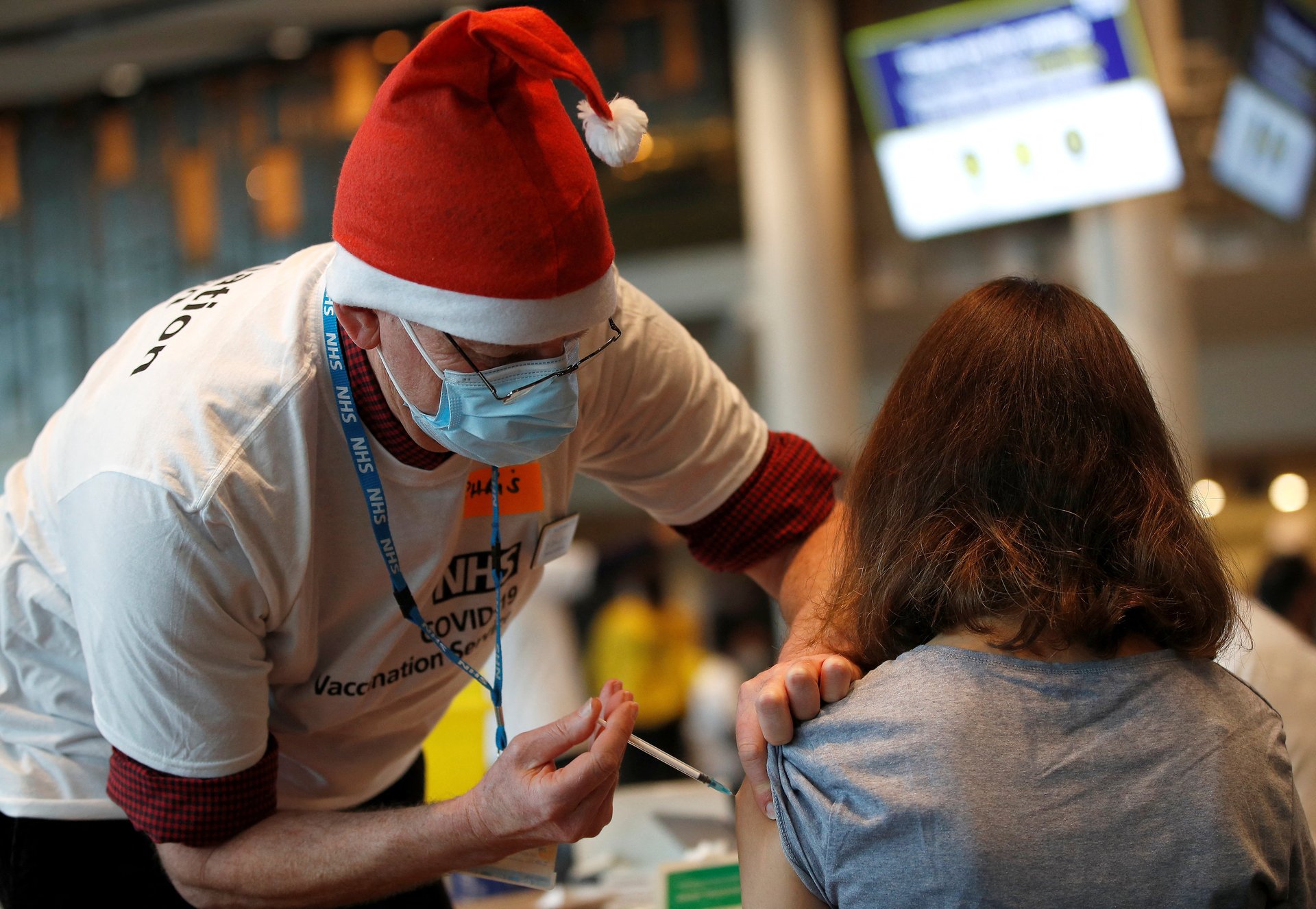How well do the major vaccines work against omicron?
It’s been nearly a month since omicron’s detection caused alarm because of its large number of mutations. Now preliminary lab research suggests these mutations do appear to boost the variant’s ability to infect even fully vaccinated people, as well as those who have previously had covid.


It’s been nearly a month since omicron’s detection caused alarm because of its large number of mutations. Now preliminary lab research suggests these mutations do appear to boost the variant’s ability to infect even fully vaccinated people, as well as those who have previously had covid.
Though it’s possible that omicron causes milder symptoms than delta, any highly contagious strain could still overwhelm hospitals. And even a “mild” case of covid can be very unpleasant. So it’s important to study the effectiveness of the most widely used vaccines.
In short, these studies suggest (although it must be emphasized that none have been peer-reviewed yet) that you must get your shots and your boosters.
AstraZeneca and omicron
Nearly 2.5 billion doses of the vaccine developed by AstraZeneca and Oxford University vaccine have been supplied globally, and 1.1 billion of them administered in India alone.
A Dec. 14 omicron study (pdf) that included researchers from the UK’s Health Security agency, Oxford University, and Imperial College London, estimated efficacy against the variant by looking at the results of nearly 188,000 people testing positive or negative for omicron or delta, and correlating that with their vaccine status. This method found that after 15 weeks, two doses of AstraZeneca had a negligible effect in preventing covid.
The researchers cautioned that the study results are based on a very small number of samples for omicron—581 compared with 56,439 delta cases—and has yet to be peer reviewed. Of the 581 omicron cases, 20% were made up of unvaccinated people (who made up 11% of the overall test results looked at), while 33% had received two shots of the AstraZeneca vaccine 15 weeks or more earlier. But two shots of AstraZeneca, followed by a Pfizer booster, improved protection.
A Dec. 17 lab study (pdf) by researchers from Columbia University and the University of Hong Kong found that four new spike protein mutations, in particular, give omicron robust resistance to vaccines. ”It is not too far-fetched to think that [covid] is now only a mutation or two away from being pan-resistant to current antibodies,” warned the authors of the study, which is also not peer reviewed.
Still, the antibody numbers alone don’t give us an equally important part of the picture—how well the vaccines will do at preventing severe illness or hospitalization. That will need more real-world data.
Pfizer-BioNTech and Moderna
A study of test results by South Africa’s largest insurer, Discovery Health, found that two Pfizer shots were 70% effective against infection compared to an around 80% level seen earlier, but 70% effective against severe illness. (It also found that omicron appeared to be causing fewer hospitalizations.).
The Columbia University-University of Hong Kong study found that Pfizer’s antibody-neutralizing capacity for omicron is 20 times lower than for the original (or wild) variant. In the British study, of the 581 omicron cases, 32% had received two doses of the Pfizer vaccine, with most of those 15 weeks or later than their second dose.
But, again, a booster shot makes a big difference. Pfizer has noted that two doses of its vaccines are significantly less effective against omicron, but added that a booster takes protection back to the levels two doses were providing against the wild strain. About 2.25 billion doses of the Pfizer-BioNTech vaccine have been supplied globally.
Studies suggest that Moderna is one of the most effective vaccines at preventing infection in the first place. The Columbia University-University of Hong Kong study showed a ninefold decrease in neutralizing activity against omicron—a better result than with most other vaccines. With a booster shot, antibody activity improved even further.
Sinovac
Chinese firm Sinovac’s CoronaVac is one of the most widely delivered vaccines globally, supplying shots to a number of African, Latin American and southeast Asian countries, despite its lower efficacy rate. Even before the emergency of omicron, Brazil and other countries have been recommending boosters for older recipients of this vaccine.
A University of Hong lab study suggesting that samples from people who received two doses of CoronaVac failed to produce detectable antibodies to omicron could make the case for a booster shot even stronger.